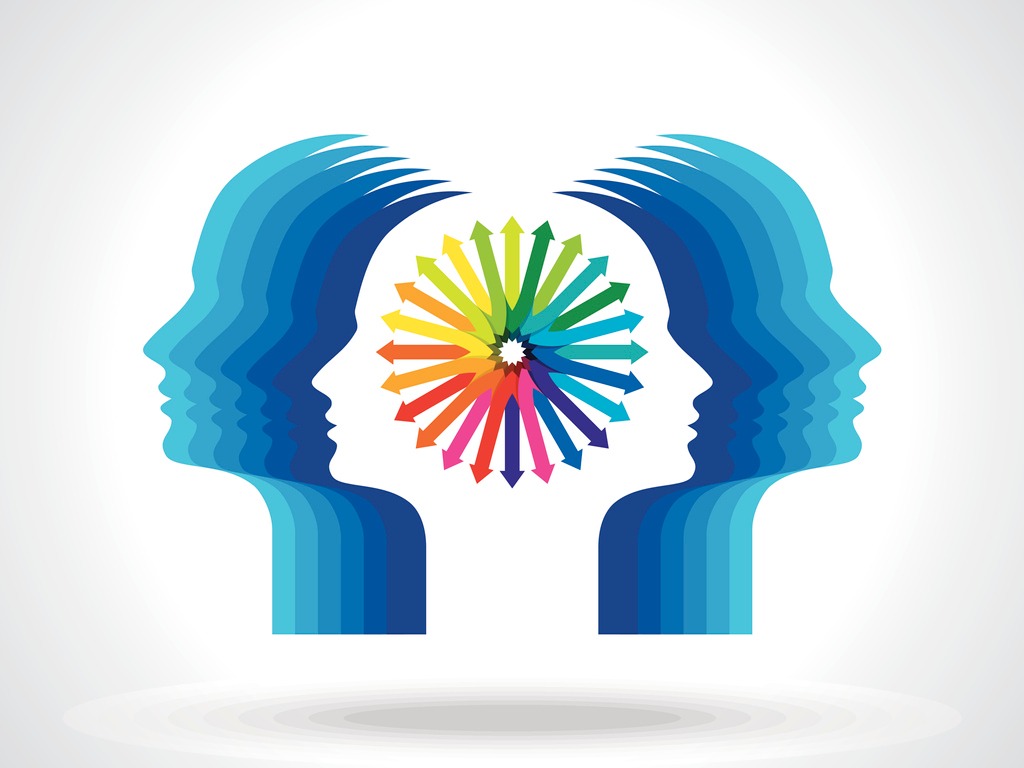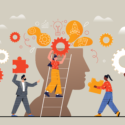
Lindsay Taylor explains how to develop your emotional intelligence; a key skill for the future
The World Economic Forum Future of Jobs Report identifies a shift in the division of labour between humans, machines and algorithms.
The report cites that by 2022, 58% of task hours will be performed by humans as opposed to 71% today. “Automation, robotization and digitization” are impacting the way we work. That resulting impact is determining the growing skills required by 2022:

In this article we will focus on Emotional Intelligence.
What is Emotional Intelligence (EI)?
Emotional Intelligence (abbreviated to EI) or Emotional Quotient (abbreviated to EQ) is a term popularised in a book published in 1995 by Daniel Goleman. Goleman identifies five “domains” of EI, namely:
1. Self-Awareness
If you’re self-aware then you know how you feel. You will also know how your emotions and actions can affect the people around you. To improve your self-awareness:
- Conduct a Personal SWOT analysis – take an honest look at yourself will develop your self-awareness. You will be able to identify your areas for development.
- Keep a journal – spend a few minutes each day writing down your thoughts and feelings
- Recognise when you are experiencing strong emotions. Be curious as to the reasons you are experiencing them.
- Remember you have a choice how to behave in different situations.
- Build up your vocabulary of emotion labels – work through an A-Z (from Anger to Zeal?)
- Watch Amy Cuddy’s TED Talk “Our Body Language May Shape Who We Are”
2. Self-Regulation
This is about staying in control and drawing on your ability to be adaptable and flexible in different situations.
- Know your values – read the article by Lorraine Groves “Define your values to create a healthier, happier life”. You need clarity on what’s important to you if you are going to make the right choice when faced with decisions.
- Hold yourself accountable.
Don’t blame others when things don’t go to plan. Admit to your mistakes. - Practice being calm. It’s inevitable that you will face challenging situations in your life. Have strategies ready to put into practice so that you can remain calm. Deep breathing is an easy yet effective solution.
- Think before your act.
- Practice saying “no”.
- Become comfortable with change. It can be easy to relax into ways of doing things that feel natural to you – the way you’ve always done them. Being flexible takes energy, time and often courage. Remember that tying something in a different way could result in a better outcome. You’ll be developing your learning mindset and stepping out of your comfort zone to really develop yourself too.
3. Motivation
Work consistently towards your goals and maintain quality in your work.
- Make sure your goals are energizing and exciting to you – for you to commit to achieving something you have to really want it!
- Use “Towards” Language to promote positivity and motivation.
- Relish all challenges – recognise them as opportunities for development.
- Maintain a positive mindset (particularly in challenging situations) and recognise that there is always something to be learned from every situation.
4. Empathy
Step into someone else’s shoes – consider a situation from another person’s perspective.
- Foster respect – understand that the needs, wants and viewpoints of others will not be the same as yours. We are all different and that’s what makes the world so exciting!
- Be aware of your body language when communicating with someone. We are, in effect, leaking information all the time.
- Develop your listening skills.
- Favour curiosity over judgment.
- Acknowledge someone’s feelings. We are emotive creatures and it’s good to share how you are feeling.
5. Social Skills
- Develop your communication skills – tap into the 3Vs of Verbal, Vocal and Visual communication and ensure these are aligned.
- Develop your assertive and influential language.
- Foster an attitude of gratitude – give praise and feedback to others to help them grow and develop.
The 2022 Skills Outlook shows that we will need our human skills more than ever to balance out robotization. I would encourage you to develop your prowess in these skillsets.













